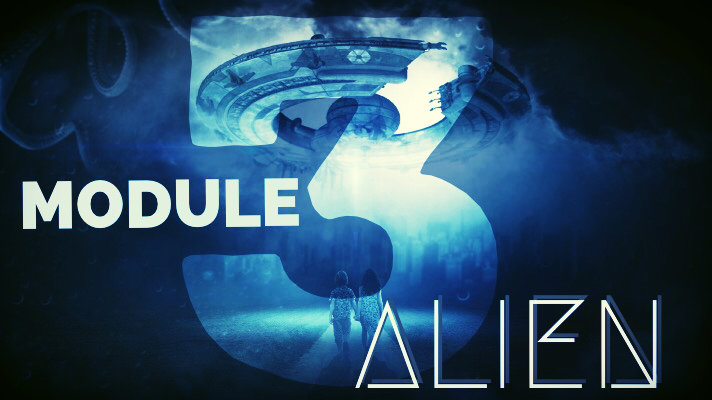Discussion 5: Apotheosis
- T. Velazco

- Apr 24, 2018
- 5 min read
Updated: Jun 5
APOTHEOSIS
Discussion V
[These Discussions were from a Sci-Fi Literature class I took at FIU. All these papers received A’s.]
Personally, this was one of the most interesting modules for me. The themes presented made me think a lot about the world we live in today. Oryx and Crake by Margaret Atwood was a brilliant book, even though it had some uncomfortable moments. It made me ponder about where the world is headed. Red Shirts by John Scalzi talks about simulations and parallel dimensions, and made me question my own reality. The idea to keep in mind with this module, in my opinion, was that the characters in both of these novels had their belief of the world upended by some catastrophic event.

In Oryx & Crake, we saw the death of the the human race, and in Red Shirts, it was the death of their reality. it was shocking to them because they were never real, they were mere simulations. Both authors present this information to make the reader question their life and what they think is reality. They both present ideas that we ourselves may be troubled by now. They want the reader to take a step back to analyze society. At the end the reader will question is this a work of fiction or is there some truth to it all?
First let’s talk about Oryx & Crake. Crake was a sort of an Anti-Christ for Atwood. I’m not sure if she is religious, but the themes she presented, gives the reader a religious, apocalyptic feel. Crake was a smart guy—the archetype of the mad genius— who makes a virus and then kills off the population. He then fashions a new race in his own image and releases them in a compound called Paradice. The Biblical themes remain heavy throughout the novel. The author wrote this book to expound on broad moral themes.
One of the strongest elements is the one of pedophilia. There is an unsettling scene with whip cream that I will never get out of my head. In this fictional world, there are cable channel televised death squads. Then there are the multiple animals experimented in the labs that are really strange and frightening like the pigs that can eat people. I later found out this actually held an iota of truth in real life, as most of her stories do. Yes, people have been eaten by pigs.
Crake becomes famous because he created amazing pharmaceuticals. These pills could make a person happy, skinny, less bald, or beautiful. He liked the idea of playing with DNA.
We are also presented with bizarre foods—chickie-nobs—which sound too similar to chicken nuggets from Mc Donald’s.
But there is a bigger picture that Atwood is trying to wake the reader up to— the human race is walking into the apocalypse. The situations she presents are upsetting, but they exist.
Her book mentions what can be compared to the urban legend of red rooms, where people pay money to online executioners to watch victims receive torture. While this may not be true, because there is no evidence of it in real life, one can imagine it as a plausible idea. She also spoke about pedophile channels where men would pay to see children sexually molested. Reading these parts of the book were horrible and will make anyone’s stomach turn, but it is this precisely that the author wants. She is trying to make readers see that all of these situations can happen in real life. That the human race can devolve into this if given the same circumstances.
In comparison to some of these fictional accounts, are the real stories of live executions on Facebook. While they weren’t on televised cable channels, this has occurred in the past. Will there be a Crake born one day to put an end to it all? Which leads me to my next point, do what writers write about really happen? I don’t think the author was the birth of terrible things that have already happened, but somewhere along the way, these ideas of malice and harm have embedded themselves into the collective unconscious.
Red Shirts was not a book I felt I would enjoy, but I actually ended up loving it. The main theme of this novel is a thought that has plagued me as a writer— will I write something one day that will come alive in some dimension? John Scalzi seems as though he has wrestled with this as well. It’s unsettling to think about, because there have been some frightening books written over the years.
A name my brain goes back to time and time again, is Stephen King. Pennywise the clown in IT, sparked a generational fear of the once thought cheerfully makeup-caked faces.
Another that comes to mind, is George Orwell’s 1984, which was written in the forties, but the themes related to government surveillance and Big Brother are staring us all in the face right now.
So if what is written becomes real, then who truly are the characters that these authors have killed? What then if we ourselves are a story in some mad writer’s Word document? What if reality is not even what we think it is? All theories seem to imply we are simulations. Was John Scalzi actually trying to warn us about society just like Atwood, yet passing it off as some funny story about the Chronicles of the Intrepid?
In reality, we have no idea how we got here. We are hurtling through space at a million miles per hour. No one knows how humans were created. All we know is that we are made of code and we all are designed by a blue print, our DNA. The author is trying to open minds to these bigger themes and make us question our place in the universe.
I found it comical when they are all talking about the story lines, and one person says that they had no back story so they would probably be killed faster. In gaming they call them the NPCs, the non-playable characters. Only the main characters get fully formed back-stories.
So what if we are NPCs? As for myself, I can remember bits and pieces of my past when I was really young, but maybe it was implanted. How about people that die young, did they have minimal backstories? Maybe we are the glitches of the universe. So many questions with so few answers is a great way to end the semester and my stint here at FIU. I had a great time this class hashing out the ideas and stories in discussions. I never knew any of these books, and probably wouldn't have looked twice at them if I had seen them in a book shelf. I am glad I was able to study them in such depth for this class. Don't stop questioning everything!



Comments